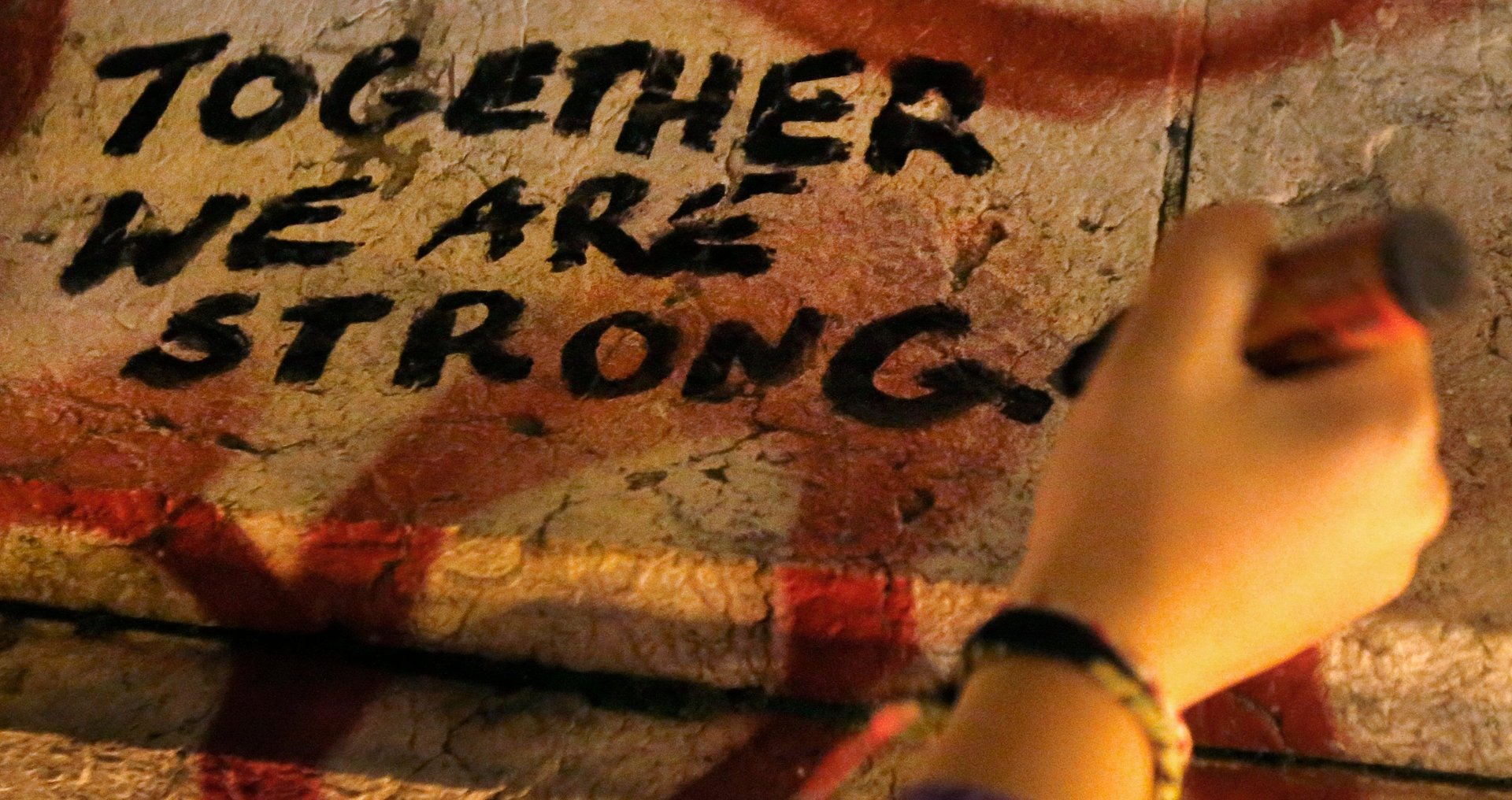There will be no marches in Paris today, but that doesn’t mean we are silent
Paris


Paris
Early Christmas shoppers, morning joggers, tourists—you could be forgiven for thinking this is a regular mid-November weekend in Paris. But of course, it’s not. Because on Friday, tragedy yet again struck the French capital. Less than a year after the attacks on Charlie Hebdo, my city is once again struggling to come to terms with the terror in our midst. But this time, there are no marches in the streets.
People at a house party I attended on Friday evening began to realize what had happened around 9:30pm, just minutes after explosions were reported near the Stade de France. The connection with the attacks at Le Bataclan and rue de Charonne, among others, wasn’t immediately clear, but the escalating death toll suggested this was a carefully planned operation. Once friends had clarified their whereabouts and checked on their loved ones (many using Facebook’s customized safety app), they tried to locate missing persons (#rechercheParis) and reached out to those looking for safety (#PorteOuverte).
From people offering to shelter passersby in their homes to taxi drivers turning off their meters and football fans singing the French national anthem as they were being evacuated from the stadium, Parisians found their own ways of showing solidarity.
One thing was immediately clear—the aftermath of these attacks would look different from the aftermath of the Charlie Hebdo shootings. Following the killing of 17 people over three days of terror in January, the world mourned in person and in spirit. While the outpouring of virtual goodwill has been similar this time around, demonstrations and rallies have been banned until Thursday. But that doesn’t mean Parisians have fallen silent.
Instead, the people of the City of Light have taken it upon themselves to show solidarity and courage in more intimate, individual ways. On Saturday long lines of prospective donors at blood centers had to be told to try again next week. In homes across the city, spontaneous gatherings sprang up as people gravitated towards human connection. Said one on Facebook: “Anyone welcome for lunch. There will be coffee, music, newspapers. Come talk, keep an open mind, and stand tall.”
While heightened security measures echoed the city’s reaction after the attacks on Charlie Hebdo, this feels different. Most victims then were painted immediately as heroes: journalists, cartoonists, policemen, all men and women who devoted their lives in some way to defending values they believed in. Friday night’s attack was against ordinary people–people who were listening to loud music, getting drunk, enjoying a normal evening. Whether you preferred rock or jazz music, sitting inside or outside a café, might have determined your chances of survival.
This was an act as cowardly as it was senseless, targeting civilians who demanded no attention and expected none in return. And yet Parisians’ dignified and defiant reaction this weekend once again demonstrates that conquering fear and standing united—in whichever way available—is the most powerful response to intolerance.